
A collection of 14 Graeco-Roman tombs, artefacts and a mummy dating to the third century BC have been discovered in a cemetery in the Ain El-Zawya area of Bawiti, a town in the Bahariya Oasis, Egypt. The find is early evidence of a large Graeco-Roman necropolis at the site.
The tombs were found during excavation works ahead of the building of a local youth centre in the area, about 260 miles southwest of Cairo. Dr. Mahmoud Affifi, director of Cairo and Giza antiquities, said that the Supreme Council of Antiquities (SCA) has halted construction and has started legal procedures to bring the area under SCA control.
Affifi adds that the tombs have a unique interior design consisting of a long stairway leading to a corridor which ends in a hall containing mastabas at its corners that were used in burning burying the dead.
Dr. Zahi Hawass, Secretary General of the SCA, said the newly discovered tombs are rock-hewn, and that early investigations have unearthed four anthropoid masks made of plaster, a gold fragment decorated with a scene of the four sons of the god Horus, and a collection of coins, as well as clay and glass vessels.
The excavation has also unearthed the mummy of a 97cm-tall woman, covered with coloured plaster featuring her in Roman dress and wearing some of her jewellery.
href="http://heritage-key.com/site/bahariya-oasis">The Bahariya Oasis - known in ancient times as 'the Northern Oasis' - is also where in 1996 Hawass' team discovered the Valley of the Golden Mummies, where an impressive collection of 17 tombs with 254 mummies have been unearthed. With a constant water supply and metal deposits nearby, the oasis has been a centre of activity since the Paleolithic period. During Alexander the Great's rule in Egypt a temple in his honour was constructed at the site - at that point an important trade location. The oasis community prospered during the reign of Alexander, and counted many Greeks among its ranks.
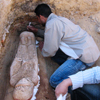
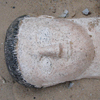
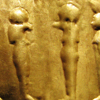
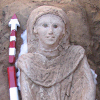
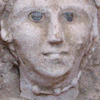



0 comments:
Post a Comment